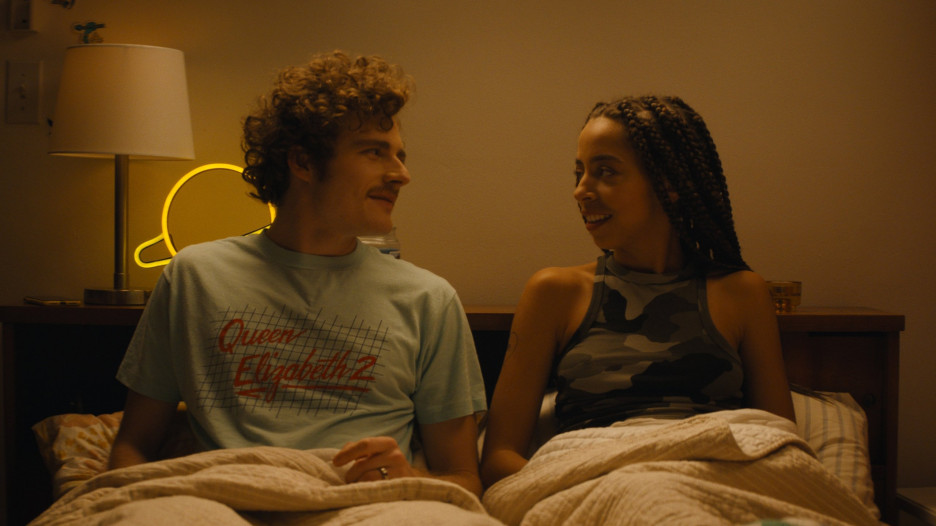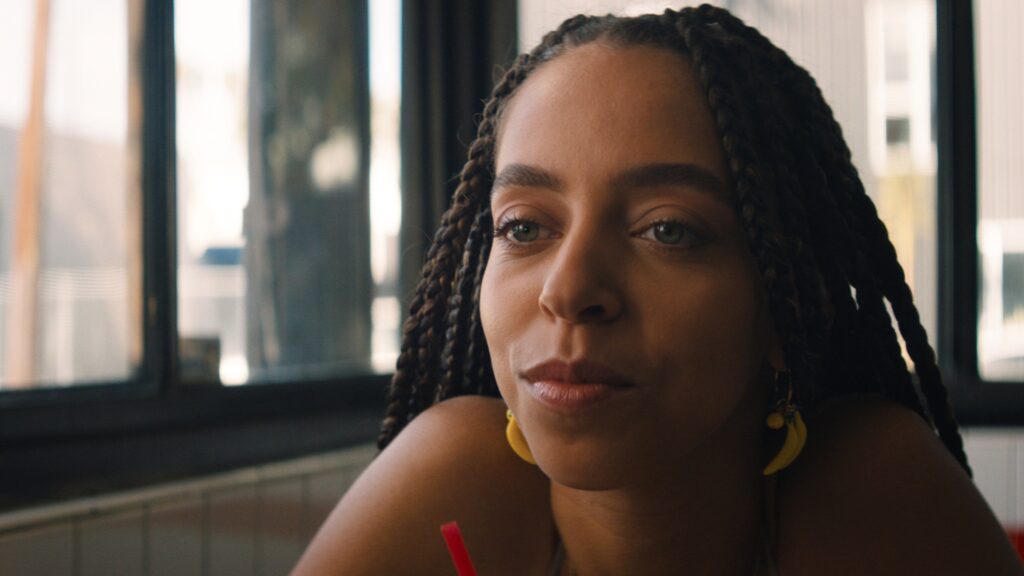Swipe left or forever hold your peace
In her first two features, Hannah Marks carved a distinct storytelling pattern for herself as a writer and director: Both are contemporary comedy-dramas probing complicated relationships with surprisingly pessimistic third acts. Her first film, After Everything (which was co-written and co-directed with Joey Power), looked at two people who fell deeply and rashly in love following a cancer diagnosis. Mark, Mary, and Some Other People follows an impulsive young couple who get married on a whim then decide to open their relationship to other sexual partners.
Mary (Hayley Law) bumps into college acquaintance Mark (Ben Rosenfield) while she’s at the store buying a pregnancy test following a hookup. He is undeterred by the awkward situation — in fact, he offers moral support by singing while she pees on the stick — and when it comes up negative they decide to go out to lunch to celebrate.
Jump ahead a year in the future, and Mary and Mark are in love. They decide to elope. They fit each other perfectly — she likes his dorky, unfiltered sense of humor; he digs her fiery intensity and passion. And for a (very) short period all seems peachy keen. Then, at literally the first party after their wedding, someone makes a remark to Mary that it must be tough being shackled up with just one guy. Mary gets a sad glint in her eye.
Later, she suggests to Mark they open up their relationship, and he is understandably a bit put off by this. But the nature of their relationship is riding whims and respecting the freewheeling spirit of each other. So after some back-and-forth, they give it a go.

Reader, would you believe it goes poorly? While there is indeed a sexy period where it seems like the best idea in the world, including some fun scenes where they explore the boundaries of the arrangement, they eventually learn that Actions Have Consequences. This comes to them as a startling discovery (ironic, given how they met in the first scene). The obvious conclusion to this story would seem to be “your love is enough,” yet Marks undercuts easy resolution in a finale that I believe many will find alienating. I was certainly deflated as the credits rolled. But this is how I felt following After Everything, and I watched another Marks joint, so obviously I was drawn back. Indeed, she has a knack for the good kind of feel-bad vibes.
On the positive side, Mark, Mary, and Some Other People is made and told well. Marks has some good instincts on rhythm and pace. The banter she writes is mostly enjoyable to listen to. I’m most impressed with her fearless use of ellipsis, a strength also displayed in After Everything: some important moments happen off-screen, and large chunks of pro-forma exposition are cut out on the assumption we’ll figure out how we got there. And we do. Marks’ visual style doesn’t fall into the easy pattern of gritty naturalism for these Sundance-style indies: there’s a certain fizziness to the look, and especially to the editing, which is sometimes downright playful in stitching together shots and scenes.
Here’s where I pivot hard towards the negative, though: As much as I enjoy and admire Marks’ filmmaking style, I absolutely hate this story. It starts with the leads: Mark and Mary are both insufferable. Neither performance is especially great, but the acting is not really the problem. It has its quirks: Law has an appealing, uninhibited energy (wonderfully evoked in her piercing, green-gray eyes). Meanwhile, Rosenfield has a truly misguided mustache. (At one point a character compliments him on it, and I’m genuinely not sure if this moment is Marks lampshading how bad it is.)
The problem is more in the writing: Mary is the more frustrating of the two overall, her stubbornness making every twist of the story more uncomfortable. But Mark really takes the cake towards the end of the film, his inviting vivaciousness in early stretches turning chilly at the worst times. Some of this is intentional, yet I think we’re supposed to find the pair much more sympathetic and relatable than I ever did.

While I vaguely understand the impulse at the core of story, tracing impulsiveness to its (il)logical conclusions, the idea is nowhere near compelling enough to make up for how poorly the scenario reflects on the characters. This is not some big deconstruction of monogamy — in fact, the film has astonishingly few ideas on the strengths and weaknesses of lifelong love to one person given that’s the entire premise — but is instead a chance to spend 90 minutes with two immature people who don’t seem to understand the concept of sacrifices involved with commitment.
And so Mark, Mary, and Some Other People is ultimately a swing and a miss, but not one that does too much to diminish my hope for Marks’ future pictures. Her writing is intermittently probing and bold, her directing savvy, and there’s real potential for it to connect with a real hit if she finds the right subject to match her style. And it certainly seems she’s trying: the 31-year-old has directed four films since 2018 while remaining an active actress. But Mark, Mary, and Some Other People ain’t it.
- Review Series: Hannah Marks
Is It Good?
Not Very Good (3/8)
Dan is the founder and head critic of The Goods. Follow Dan on Letterboxd. Join the Discord for updates and discussion.

